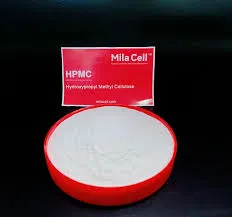
Oct . 04, 2024 21:17 Back to list
Leading Suppliers of Hydroxyethyl Cellulose for Diverse Industrial Applications
Hydroxyethyl cellulose (HEC) is a non-ionic, water-soluble polymer derived from cellulose, a natural polysaccharide found in plant cell walls. As a functional additive, HEC is widely used across various industries due to its unique properties, such as thickening, binding, and film-forming abilities. The demand for HEC has increased significantly in recent years, leading to a rise in the number of manufacturers specializing in its production.
A reliable hydroxyethyl cellulose manufacturer must adhere to strict quality control measures to ensure the consistency and purity of the product. The production process typically involves the alkalization of cellulose, followed by a reaction with ethylene oxide. This process requires precise control of temperature and pH levels to guarantee high-quality HEC. Manufacturers often invest in advanced technologies and equipment to optimize production efficiency and minimize contamination risks.
HEC is particularly valued in the construction, personal care, and pharmaceutical industries. In construction, it serves as a thickener and water-retaining agent in cement-based products like mortars and plasters, enhancing workability and adhesion. In personal care, HEC is a popular ingredient in shampoos, conditioners, and skin creams, where it acts as a thickener and stabilizer, improving product texture and performance. Additionally, in the pharmaceutical sector, HEC is utilized in formulations for controlled drug release and as a binder in tablet manufacturing.
hydroxyethyl cellulose manufacturer

Choosing the right hydroxyethyl cellulose manufacturer is crucial for businesses aiming to maintain product quality and meet regulatory standards. Prospective buyers should consider factors such as the manufacturer's experience, production capacity, and certifications like ISO and GMP. Furthermore, engaging with manufacturers that offer technical support and customization options can be beneficial, as industries often require specific grades of HEC tailored to their unique applications.
Sustainability is another important aspect for modern manufacturers. As environmental concerns continue to grow, many HEC producers are exploring eco-friendly production methods and sourcing renewable raw materials. This commitment not only meets consumer expectations but also positions manufacturers as leaders in sustainable practices.
In conclusion, hydroxyethyl cellulose is indispensable across various sectors, and choosing a reputable manufacturer is essential for ensuring quality and reliability in end products. The industry's focus on innovation and sustainability further augments the potential for future growth in hydroxyethyl cellulose applications.
-
Versatile Hpmc Uses in Different Industries
NewsJun.19,2025
-
Redispersible Powder's Role in Enhancing Durability of Construction Products
NewsJun.19,2025
-
Hydroxyethyl Cellulose Applications Driving Green Industrial Processes
NewsJun.19,2025
-
Exploring Different Redispersible Polymer Powder
NewsJun.19,2025
-
Choosing the Right Mortar Bonding Agent
NewsJun.19,2025
-
Applications and Significance of China Hpmc in Modern Industries
NewsJun.19,2025







